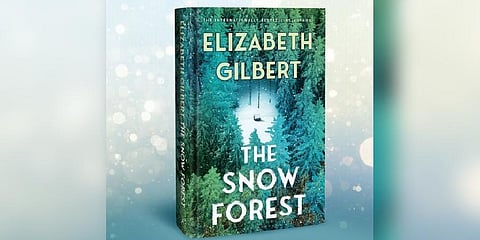

CHENNAI: The author Elizabeth Gilbert announced her latest novel, The Snow Forest, recently — and has since rescinded the book itself, stating that she is responding to the backlash of Ukrainian would-be (or wouldn’t-be) readers.
In her second announcement, about withholding the book indefinitely from the publication schedule, she described it as being about a group of Russian people who resist the Soviet government and the industrialisation of nature in the mid-20th century.
The feedback she has responded to is from people who are angry or hurt that she would “choose to release a book into the world, any book, no matter what the subject is, that is set in Russia”. This is in the context of the ongoing war in Ukraine. The book has hundreds of 1-star ratings on Goodreads; presumably, people let their ire be known through other online platforms as well.
Gilbert says she has heard, read and respects their messages (she may have gone against the No.1 rule of authors who have to be online and also want to stay sane: never look at Goodreads). Gilbert has a significant amount of power over her own publishing choices, as the author of the extremely successful Eat, Pray, Love, and is a person very much in the public eye.
There is no chance that her publishers chose to cancel the release, as the link between controversy and commercial gain hardly needs elucidation. The decision was probably unilaterally Gilbert’s. I first heard of the novel being withdrawn when another famous author tweeted in response to the announcement: “This is a mistake. It doesn’t help Ukraine or Ukrainians. It doesn’t end the war. And it doesn’t punish Russia. It isn’t solidarity. It’s censorship.” The second author has since deleted their tweet, which is a little funny. I wonder if they were censored too.
I agree with those who feel that Gilbert has made a foolish decision — and I would go as far as to say that it plays into troublingly unnuanced ways of seeing the world. The government of the Russian Federation, presently led by Vladimir Putin, is not the people of Russia, who are presently governed by the latter.
Historical fiction about Russian people can only serve as validation of the current Russian government if readers are incapable of separating the two. Even fiction about contemporary Russian people does not necessarily vindicate its government. A closer reading of the politics of the work in question, any work, is needed before such a critique. Such close reading seems beyond the ken of those who purport to read — all the more so when a book hasn’t even been released.
As a writer, I want to believe that readers are not so disappointed. As a person who reads things, and uses social media a lot, I’m compelled to admit that too often, internationally speaking, the most vocal among current readers can be incredibly vapid. The truth is that this kind of censorship happens a lot, not just to artists of Gilbert’s stature, but more sweepingly too. Almost always, to give in to such pressure is to corrode the integrity of one’s own work, and diminish literature’s multivalent possibilities.